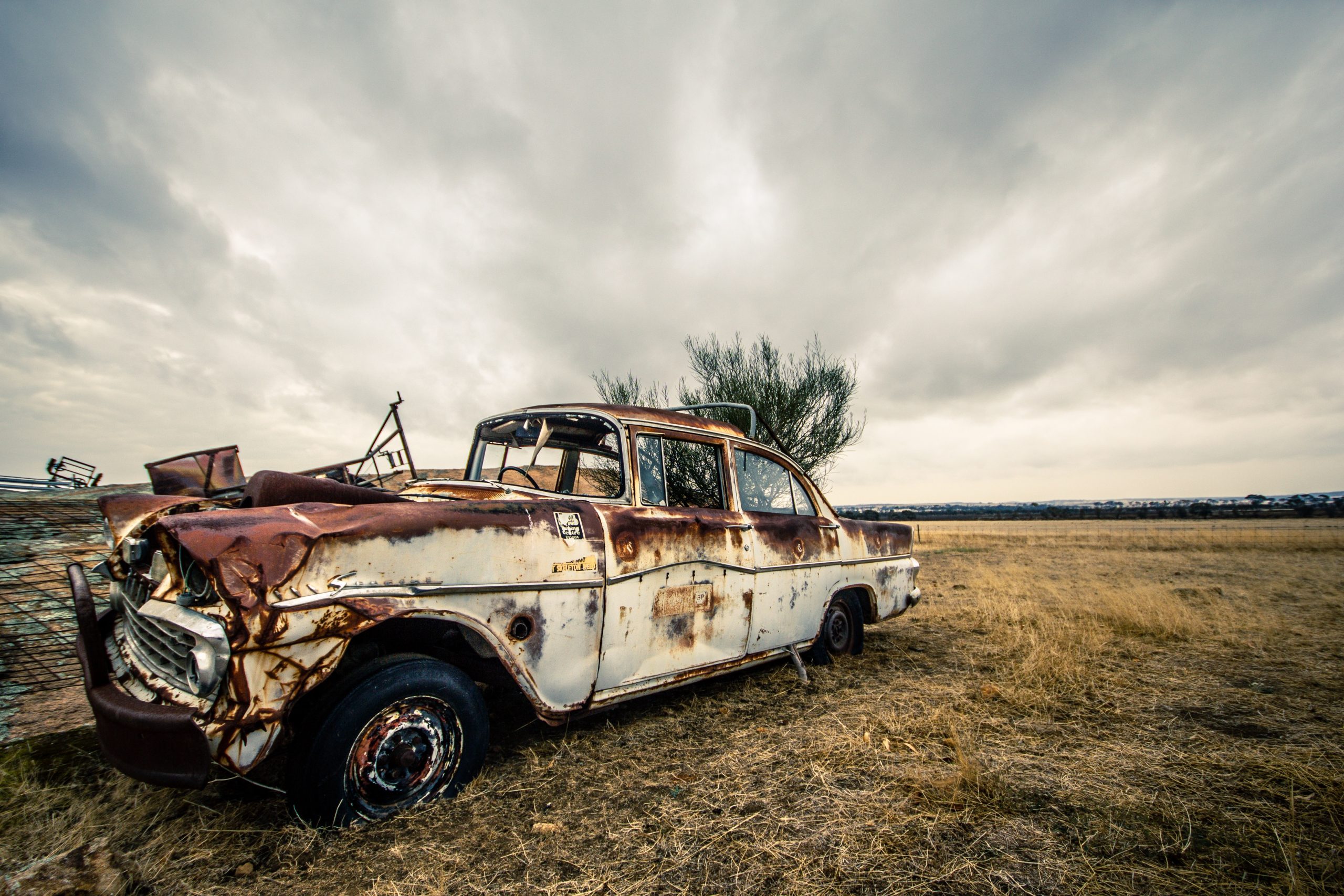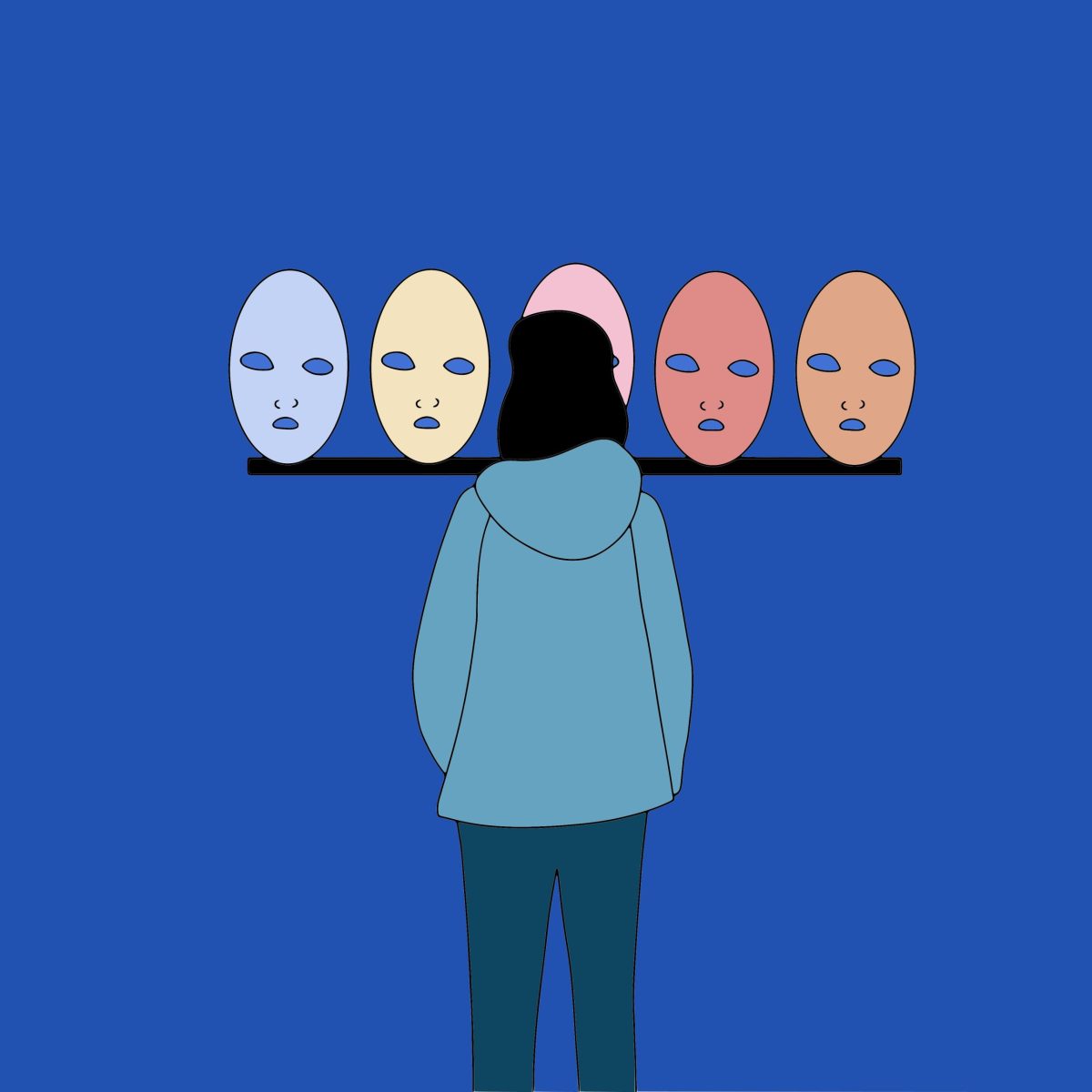interviews
Double Take: Scott McClanahan’s ‘The Sarah Book’ is Beautifully Told and Breathtaking
McClanahan’s latest may very well be his magnum opus

“Double Take” is our literary criticism series wherein two readers tackle a highly-anticipated book’s innermost themes, successes, failures, trappings, and surprises. In this edition, frequent Electric Literature contributors Tobias Carroll and Gabino Iglesias discuss Scott McClanahan’s The Sarah Book.

In this, McClanahan’s third book, Scott forges new ground with his unique semi-autobiographical prose. This time, he directs his attention to the dissolution of a marriage, the story of one era ending and the hopeful beginning of another. The Sarah Book takes the reader to unabashed new ground, and never lets you go.
Spoilers are encouraged and fair-warned, with the hope that readers purchase the book and join the discussion in the comments.
Tobias Carroll: I’m not 100% sure when I first saw Scott McClanahan read. I suspect it was at Franklin Park Reading Series; I was also mightily impressed that, at the time, he could pull off the self-publishing thing without losing sight of his craft. While I’d certainly say McClanahan has grown as a writer since the days of the Stories books, he’s kept up the ability to write these beautifully told works that feel effortless, but clearly aren’t. To say nothing of the way he folds together memoir and fiction, I’m thinking of some of the more surreal moments in both Hill William and Crapalachia.
I feel like I’ve been hearing talk of The Sarah Book for a while now. And now I’ve read it, and…
I think the main thing about it for me, and maybe a good place to start, is how McClanahan comes off in the book. To some extent, his narrators occupy this almost sublime space; there’s a kind of benediction in some of his work, which is great, and the persona he gives off is almost a holy figure. It seems like in The Sarah Book, he absolutely decimates that. This is the story of the end of a marriage, and it’s the story of someone coming to terms with a whole host of bad behavior, and it was an utterly harrowing read for me.
I’m curious about two readers coming to this: the ones that have read McClanahan for years and those coming in entirely fresh. I’m curious as to how they’d each receive it. And I’m curious about how you received it as well, and your history with McClanahan’s work.
Gabino Iglesias: I remember discussing the best songs of Van Morrison with nonfiction author and journalism legend Bill Minutaglio about eight years ago. At the end of the conversation he said something that stuck with me: “The man is plugged into something the rest of us can’t even see.”
Scott McClanahan’s fiction makes me think he’s plugged into that as well. He’s in touch with some cosmic-yet-very-human thing that gives his narratives an unshakeable sense of reality. Reading him is like sitting down with a friend who tells you stories that sound too great or too weird or too sad to be true, but that you know are based on real experiences. I agree that he shatters the beatific image, but he does so while remaining true to the rest of himself. The anger, the frustration, and those moments where he is doing something awful and knows it but can’t stop himself are all things we’ve all gone through, and they make The Sarah Book a narrative that’s very easy to understand on a deep level.
I think McClanahan’s (non)fiction gets reactions out of people regardless of their familiarity with his work. I first read his short stories and then Crapalachia, which blew me away. It felt strange and heartfelt and honest. You know, the kind of book that makes you want to question and then hug the author after you’re done reading. Readers who enjoyed that book will surely love The Sarah Book. Anyone who likes reading about flawed humans failing to cope with heartbreak and great changes will probably love this book. For those whose introduction to McClanahan’s work happens with this book, I can envision two reactions. The first is “Wow, this guy can write. This is sad, funny, touching, real, and awful.” The second is “This is the story of a loser who can’t stop messing up. He sometimes acts like a child. And what’s up with that messed up dog?” For me, the first group gets it and the second doesn’t, but you know all about literature and opinions, so I’ll leave it there. I definitely belong to the first group and think this one is as great as Hill William and Crapalachia, if not better, funnier, and sadder.
“Reading him is like sitting down with a friend who tells you stories that sound too great or too weird or too sad to be true”
TC: I’d never thought about McClanahan in conjunction with Van Morrison before, but–that seems spot-on, both for the way that they’re able to tap into an almost sacred emotional sensibility and for the way they fuck with it, the push-pull between what an audience wants and what the artist is trying to say. I am literally fighting off the urge right now to go deeply into a “smart writers on Van Morrison” rabbit hole — it’s already well into the day, and I have, as they say, miles to go before I sleep.
Beyond the (fairly harrowing) events described in the book, one of the other things that McClanahan did here that struck me was the inclusion of images. Not to that great an extent but it was still pretty intriguing to see the faces of McClanahan, his family, and even Grover show up in here. I’m not going to go so far as to say that Scott McClanahan working an extended allusion to The Monster at the End of This Book was one of the most moving reading experiences I’ve had this year, but it kind of was. I’m curious: What did you make of the use of photos? Did you find it an interesting evolution to his existing style?
GI: I’m not a fan of pretending to know what an author was thinking when he or she did something in a book, but I like to think McClanahan didn’t plan the thing with the photos and that it just happened organically. While he is an outstanding storyteller and the narrative was surely thought of in advance, there is also a raw passion in McClanahan’s work that makes me think he sometimes surprises himself with the extents he will go to in his quest to effectively communicate his story and to make readers feel something. In this case, the images were just the last stage in getting completely naked in front of his audience and probably also a clever, unique, new way for him of saying, “Hey, all of this is true. Here’s a picture to prove it.”
“There is also a raw passion in McClanahan’s work that makes me think he sometimes surprises himself with the extents he will go to in his quest.”
Something this book does very well is humanizing through humor. I laughed really hard at the scenes with the dog. That, I feel, was one of the most noticeable differences between this book and the author’s previous efforts. McClanahan has always presented his life, and Appalachia, through a funny, humane lens, but this time around, he offered cringe-worthy passages that offered a strange space to breathe between harrowing scenes in the car of painful memories. What did you think about that humorous/depressive balance?
TC: The short version: As a reader, I was pretty into it.
The longer version: To an extent, I think it was very necessary — just as McClanahan juxtaposes the ugly end of his marriage with its much more optimistic and joyful beginnings, finding a balance so that the narrative wasn’t simply a chronicle of harrowing events had to happen. So when you have a beginning that’s that harrowing — I mean, driving while wasted with children in the back seat? That’s a rough place to come back from–finding some way to even it out is pretty essential, I’d say. I, too, was pretty taken with the scenes with the dog, which were alternately hilarious and (as the dog grew older and older) pretty heartbreaking in their own right. And the marathon viewings of the “November Rain” video also hit home while also bringing a smile to my face at the image. Reading the book as a whole, I thought a lot about something Sean H. Doyle talks about a lot: The idea of writing memoir (or, in this case, fiction with an element of memoir) in which you’re the villain. I definitely got a sense of that here.
For me, the other way the humor worked had to do with questions of, not to sounds hugely pretentious, the transcendental. I think that’s something that comes up in McClanahan’s work a lot, both his prose and some of the times I’ve seen him read, where there’s been an almost religious aspect to it. (And on the flip side, there’s the scene at the end of, I think, Hill William, where he juxtaposes fucking the landscape with the landscape around him exploding.) I think that’s one of the things that puts him into his own category: There are plenty of books that have confessional or memoiristic aspects that deal with failing marriages, with alcoholism, with depression. But this one also has that sense of achieving a breakthrough in spite of all of that hate. This is a weird comparison to make, because the two books are otherwise pretty dissimilar, but I remember reading William T. Vollmann’s The Royal Family years ago and also being taken with the way that novel alternated scenes of harrowing degradation and revelatory bliss.
If You Want to Hear America Singing, Try the Walmart Parking Lot
Though that brings me back around to a question: Where would you file McClanahan’s work? I think I first read him after seeing him read and I remember hanging out with a friend in Seattle and watching her reaction to his reading at Left Bank Books during AWP a few years ago. But I’m also at a loss as to who I might recommend his work. It’s autobiographical, but there’s just a tinge of the experimental; it has an amazing sense of location, but as someone who’s never been to West Virginia, I find it incredibly affecting. To be honest, I’m shocked no one’s written about McClanahan’s stylized yet autobiographical fiction in comparison with that of Karl Ove Knausgaard.
GI: When talking about McClanahan, I think transcendental is far from pretentious. In fact, it takes us back to Van Morrison and being plugged into something bigger, something special. I guess some folks would call it holy and other would cringe at the use of the term, but whatever it is, it’s certainly there. It makes McClanahan a special author, one that, instead of working hard to write to the beat of his drum, he naturally got rid of the drums and decides a sad piano with a great sense of humor and hearts instead of strings was going to be his thing.
The more I read, the harder it is for me to recommend books to people, and the easier it becomes. To some readers, I’d say this is an unclassifiable book, and that might turn some people off. The others, and the way I’d file McClanahan’s work, would have to call his work experimental autobiography/geographical memoir. To friends, with whom we are always able to leave fancy words out and just say what we feel, I’d say “Read him. He has a unique rhythm. He’s funny and sad and strangely soulful and amazing and his work is one of the reasons indie lit is the most exciting kind of lit there is.”
“I’m shocked no one’s written about McClanahan’s stylized yet autobiographical fiction in comparison with that of Karl Ove Knausgaard.”
The fact that McClanahan’s work is getting a lot of recognition helps fuel a whole movement of contemporary authors that are moving away from “everywhere and everyone” literature and digging into their roots to offer special narratives steeped in place/space/culture. Whether it’s frontera writing or the Appalachia of McClanahan or crime author David Joy, we’re seeing a lot of unique discourses, points of view, and geography-infused fiction that shows us how we’re different while bringing us together under the “great fiction/nonfiction” banner.
TC: I agree with all of that. And I also agree that McClanahan’s influence may be felt more in what it inspires other writers to do as opposed to giving them a template that they can follow. I’m thinking back to that point in music writing a decade and some change ago when a lot of people seemed to want to emulate Lester Bangs, but only to a superficial level, as opposed to some of the more interesting things he was doing with prose. There’s plenty to learn from in Scott McClanahan’s writing; writing using a bad pastiche of his style is, hopefully, not one of those lessons.
I might be digressing here slightly, but: the use of photos in The Sarah Book got me thinking about W.G. Sebald, and while I don’t necessarily think I’d file McClanahan and Sebald too closely together, there are some similarities, including the intentional blurring of lines between author and narrator. Sebald’s work has certainly influenced a number of writers whose work I love, including Teju Cole and Laird Hunt. I think both Cole and Hunt take that template and do their own thing with it, as opposed to coming up with some sort of pastiche.
But for all of the talk on the macro level and on the theoretical level, The Sarah Book also had me feeling for its characters in their smaller, intimate moments. It left me feeling for all of them as they struggled to understand one another, and it left me hoping they’d all found a greater peace in their lives. And so I also appreciate this book for its ability to bridge those two scales, and those two worlds.
GI: I have to fully agree with that wish. I think McClanahan had already made a lot of noise in the literary world, but nothing compares to the explosion of coverage and attention The Sarah Book is getting. Small venues and large venues alike are under the spell of this man’s prose, and I love it. The fact that he has stuck to his guns despite new stylistic flourishes make him admirable. I tend to celebrate the success of good people as if it was my own because it truly makes me happy, and seeing The Sarah Book everywhere makes me happy regularly because it is everywhere. Sadly, I’m sure we’ll get some pseudo-McClanahan prose in the coming years. Too many authors wait around to see what new thing sticks and then they try to replicate the formula, and that will surely happen with this book. That being said, a few pastiches of The Sarah Book is a price I’m willing to pay for having the book with out and about.
Feeling. For all its simplicity, that word manages to capture what this book is, does, and makes. I laughed and cringed. I nodded my head in recognition of my own stupidity and felt bad for McClanahan’s mistakes. I felt for him and for the kids and for the dog and, once it was all said and done, I felt for every person stuck in a crumbling relationship and for every shattered soul processing and learning to cope with devastating new realities while sitting in a parking lot somewhere in this country. Ultimately, aside from everything happening at the macro and theoretical levels, I think this book is a success because there is a large, living, bleeding heart full of scars at the center of it, and that is something no literary analysis can explain. Some books you hate and some books you feel indifferent about and some touch in strange ways that make you love them, and The Sarah Book belongs to this last group.
“It’s a balancing act atop a balancing act.”
TC: It’s a weird kind of alchemy. I keep thinking of how certain elements seem to converge in perfect balance for certain writers, and I think you perfectly capture how that works for McClanahan. I found myself thinking a lot about how McClanahan had captured aspects of his life in this book, and the candor and fearlessness with which he did so. When I interviewed him a month or so ago, he emphasized that he considers himself a fiction writer — and so that’s also something that constantly lurks in the back of my mind when I’m reading his work. How much of this is true? How much is embellished? (See also: Eileen Myles; see also, the aforementioned Knausgaard. Which is not terrible company to be in as a writer.)
That ambiguity might also be what makes McClanahan’s work so powerful. The story he’s telling in The Sarah Book is already deeply moving and wrenching, and — if I’m not projecting too much here — very discomfiting for anyone with a self-loathing or self-destructive streak. But we aren’t reading The Sarah Book: A Memoir here — even though we can see a photo inside of a guy named Scott McClanahan who looks a whole lot like the Scott McClanahan who wrote the book. It’s that risk that elevates an already-powerful work to a new level: It’s a balancing act atop a balancing act. And it’s a work with scenes that aren’t going to leave my head any time soon.








